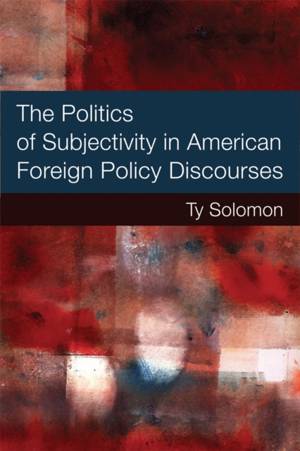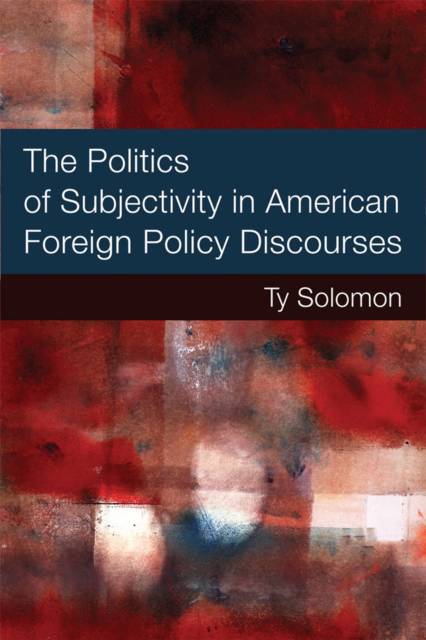
- Afhalen na 1 uur in een winkel met voorraad
- Gratis thuislevering in België vanaf € 30
- Ruim aanbod met 7 miljoen producten
- Afhalen na 1 uur in een winkel met voorraad
- Gratis thuislevering in België vanaf € 30
- Ruim aanbod met 7 miljoen producten
Zoeken
Omschrijving
Why are some discourses more politically efficacious than others? Seeking answers to this question, Ty Solomon develops a new theoretical approach to the study of affect, identity, and discourse--core phenomena whose mutual interweaving have yet to be fully analyzed in International Relations. Drawing upon Jacques Lacan's psychoanalytic theory and Ernesto Laclau's approach to hegemonic politics, Solomon argues that prevailing discourses offer subtle but powerfully appealing opportunities for affective investment on the part of audiences.
Through empirical case studies of the affective resonances of the war on terror and the rise and fall of neoconservative influence in American foreign policy, Solomon offers a unique way to think about the politics of identity as the construction of "common sense" powerfully underpinned by affective investments. He provides both a fuller understanding of the emotional appeal of political rhetoric in general and, specifically, a provocative explanation of the reasons for the reception of particular U.S. foreign policy rhetoric that shifted Americans' attitudes toward neoconservative foreign policy in the 1990s and shaped the post-9/11 "war on terror."
Through empirical case studies of the affective resonances of the war on terror and the rise and fall of neoconservative influence in American foreign policy, Solomon offers a unique way to think about the politics of identity as the construction of "common sense" powerfully underpinned by affective investments. He provides both a fuller understanding of the emotional appeal of political rhetoric in general and, specifically, a provocative explanation of the reasons for the reception of particular U.S. foreign policy rhetoric that shifted Americans' attitudes toward neoconservative foreign policy in the 1990s and shaped the post-9/11 "war on terror."
Specificaties
Betrokkenen
- Auteur(s):
- Uitgeverij:
Inhoud
- Aantal bladzijden:
- 264
- Taal:
- Engels
- Reeks:
Eigenschappen
- Productcode (EAN):
- 9780472119462
- Verschijningsdatum:
- 5/01/2015
- Uitvoering:
- Hardcover
- Formaat:
- Genaaid
- Afmetingen:
- 160 mm x 235 mm
- Gewicht:
- 521 g

Alleen bij Standaard Boekhandel
+ 177 punten op je klantenkaart van Standaard Boekhandel
Beoordelingen
We publiceren alleen reviews die voldoen aan de voorwaarden voor reviews. Bekijk onze voorwaarden voor reviews.











